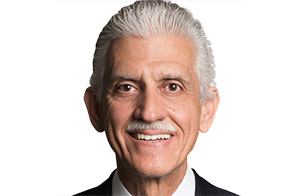Reed Smith‘s new head of international arbitration following the firm’s recent Miami merger with Astigarraga Davis, José Astigarraga (pictured), discusses his plans at Reed Smith and the future of international arbitration with Georgiana Tudor.
Why Reed Smith, and how did you find the transition from your own boutique to a large international firm?
Before the boutique, I was with a bigger law firm, Steel Hector, so I’m no stranger to a large practice. But it really is a different world – I knew the personal story of each of our people and now I’m walking around wondering which floor I’m supposed to find my new colleagues on.
The resources here at Reed Smith are outstanding, they really are eye-opening. The other reason for joining Reed Smith was the ability to reach across markets. There is a limit to what you can do as a boutique, and we saw opportunities at Reed Smith to serve clients with our joint skill-set which we really could not otherwise pursue.
How many other firms did you speak to before deciding on Reed Smith?
We had discussions with multiple firms, and we had an abundance of opportunities. The main reaction I have encountered from clients, peers and friends when we decided to merge with Reed Smith was ‘holy cow, we did not see this coming’. Our boutique’s philosophy was ‘the power of focus’ – and that did reflect in what we did.
Tell me about your plans for international arbitration at Reed Smith, as global chair. Is growth on the horizon?
As I looked at Reed Smith, I saw it as a truly exciting opportunity to help the firm enhance its brand in international arbitration. In great measure, that excellent arbitration capability is within the firm’s five industry groups. What Reed Smith is looking for and we are in the process of doing, is aligning all that and putting it together in a way that permits us to have an expanded offering and consistency across geographies both within and without the five sectors.
Is much of the US practice transferrable to London/Europe, and how do you plan to work with those outside of the US?
One of the great things about international arbitration is not being limited by a certain geography – we practice all over the world. Having said that, the ‘localisation of international arbitration’ and the segmentation of the market have started. In Latin America, there is phenomenal arbitration on the ground and you need the local knowledge and expertise to serve the client well, alongside the international knowledge.
Are you worried about Trump’s approach to arbitration, and how do you see his policy playing out in the market?
There are two worlds, one is international commercial arbitration another is investor state arbitration. The big debate in Europe and the world, related to public investor-state arbitration disputes, is that people ask ‘why should these private citizens be deciding things that could have millions of dollars of impact on the public purse if the investor wins?’ While the Trump administation has expressed views regarding trade agreements, I have not seen a clear explanation of its views on investor-state arbitration. Trump’s policy has not yet reached the granular level in terms of how arbitration will work. It is too early to tell what will be the fate of arbitration as we know it as a method of solving disputes between the investor and the state.
georgiana.tudor@legalease.co.uk
Read miore: ‘Outside the Box: Can Reed Smith’s new Euro heads take the firm’s London practice to the next level?’













